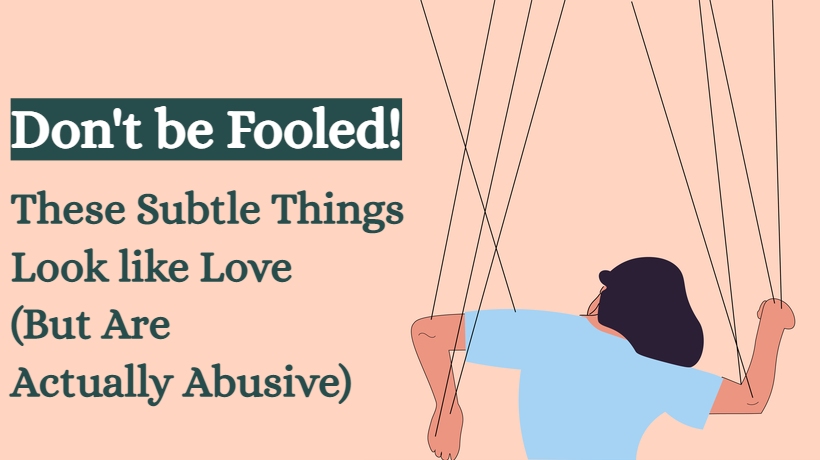The beginning of a new relationship is always an exciting prospect to explore and holds many opportunities. But sometimes it is important to know when it’s safer to have your guard up.
In a 2010 National Intimate Partner and Sexual Violence Survey, 57% of respondents said it is difficult to detect signs of violence in a relationship. Many have concluded from the survey that these signs of abuse that have been hard to detect have often been masked as “love”. We can often miss these very subtle signs of abuse, because they may appear to be love at first:
Overuse of flattery.
Of course, we all enjoy receiving compliments from the person we love most. A bit of flattery and flirtation is always good, even after the honeymoon stage of a relationship– it can be a sweet verbalization of your partner’s desire for you. Psychologists will say, however, that heavy flattery and praise can lead to manipulation in the future. Jason Whiting, Ph.D., a professor at Brigham Young University, says that flattery is dishonest when used to gain or control. It is effective, because everyone has insecurities and loves to be told great things about themselves.”
The relationship moves too quickly.
You may have heard the saying “love at first sight” a few times in your life. While this often overused phrase may seem very idyllic at first, it can be a warning sign that something is wrong. Moving too fast in a relationship can usually be a sign of an abusive relationship: a partner can act completely enamored with the other and rush to place labels or feelings that may not have developed properly yet. While this may not be the case with all relationships, it is important to keep your guard up. With a fast-moving relationship, this person may expect you to give all of your trust, time, and energy towards them too soon.
Wanting to text and call you constantly.
For many people, habitual texting and calling may seem sweet and a gesture of concern. When this line of communication turns persistent and constant, however, it can easily turn almost obsessive. Being in touch with someone is great, of course, and very much needed in a relationship. Your partner should not want to constantly demand your attention or consume your time. This can often feel suffocating and exhausting, turning a regular part of your relationship into an unwanted chore. It can often signal the obsessive and jealous nature of a controlling abuser.
Always wanting to be with you.
Sometimes the best thing to do after a long week is to spend time with your partner. It is important to beware of the partner who only wants to spend time with you. Even though this may not seem worrisome at first, if your partner begins to prohibit going out with your friends or spending time by yourself, this can be a cornering sign of abuse. Wanting to constantly spend time with you can not only be a violation of your boundaries, but to your other relationships and identity as well.
No one will ever love you more.
Hearing the words “no one will ever love you as much as I do” can be romantic and almost flattering to hear at first. Looking deeper into it, it can insinuate something much darker. An abuser will use this phrase to ultimately say that you do not deserve anything better than how they are treating you, which is a way to manipulate a partner into staying in the relationship and accepting that they do not deserve better.
“For your own good”.
This is something you may have heard your parents say to you growing up, as a justification for their choices: “I’m doing this for your own good.” If a partner says this to you while trying to convince you to do or not do something, it can be a daunting sign of a controlling person. Your partner should allow you to make your own choices and be your own person.
If you notice these signs in your partner or anyone around you, tell a trusted family member or friend.



